Chinese vase in turquoise blue “moonlight” enameled earthenware called “A la carpe” or Aux Carpes, representing a double carp joined by the belly.
Like a mirror, each detail of a carp is recreated exactly opposite, forming only one vase. All the fins (ventral, dorsal), the black enameled eyes and crosspieces representing the scales, are similar in order to create a unity.
Only the rococo base, featuring a finely chiseled gilded bronze frame decorated with reeds, rock shells and acanthus leaves, is asymmetrical. He supports the carp so that they rise towards the sky
The symbolism of the carp is very important in Chinese culture. The image it represents has always shaped stories. Meaning strength, success, harmony, it depicts courage and bravery and brings happiness. One of the most famous legends in China states that a carp that manages to swim to the “Dragon Gate” will then transform into a dragon. Parable that perseverance brings ultimate success.
Also, our current representation can be associated with this iconographic symbolism. They rise towards the heavens, like carp passing through the dragon's gate, supported by this gilded bronze vegetation whose sculpture is finely chiseled.
Very beautiful work from the 18th century during the Qing Dynasty, China.
Usage and maintenance restorations



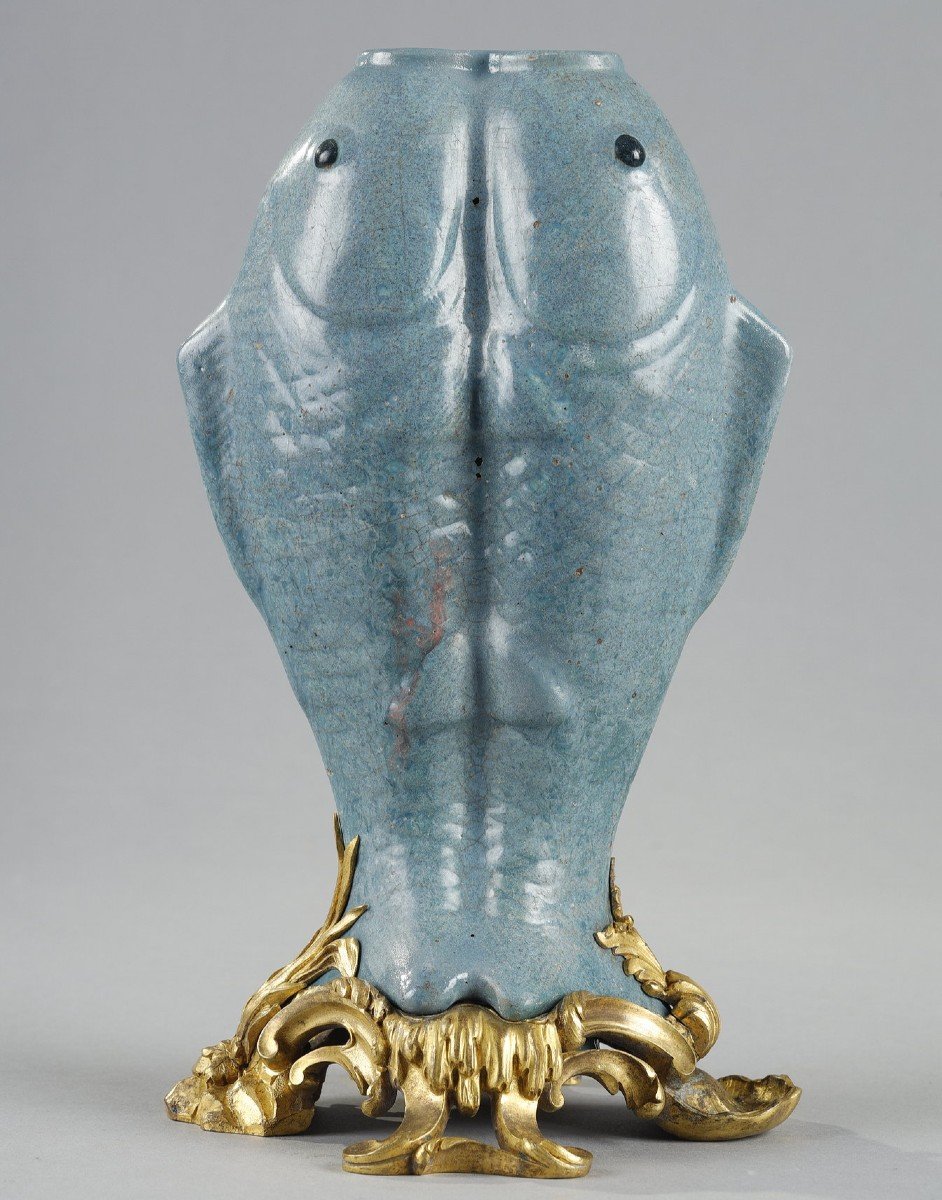
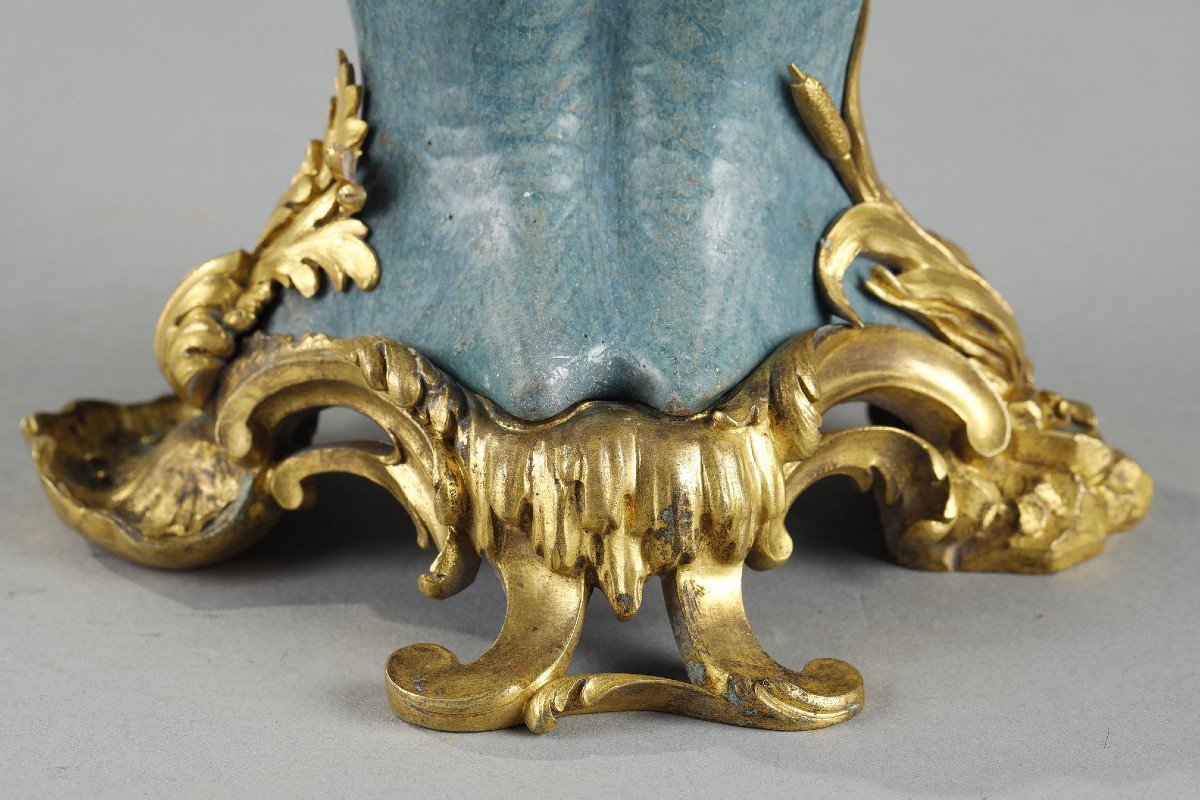
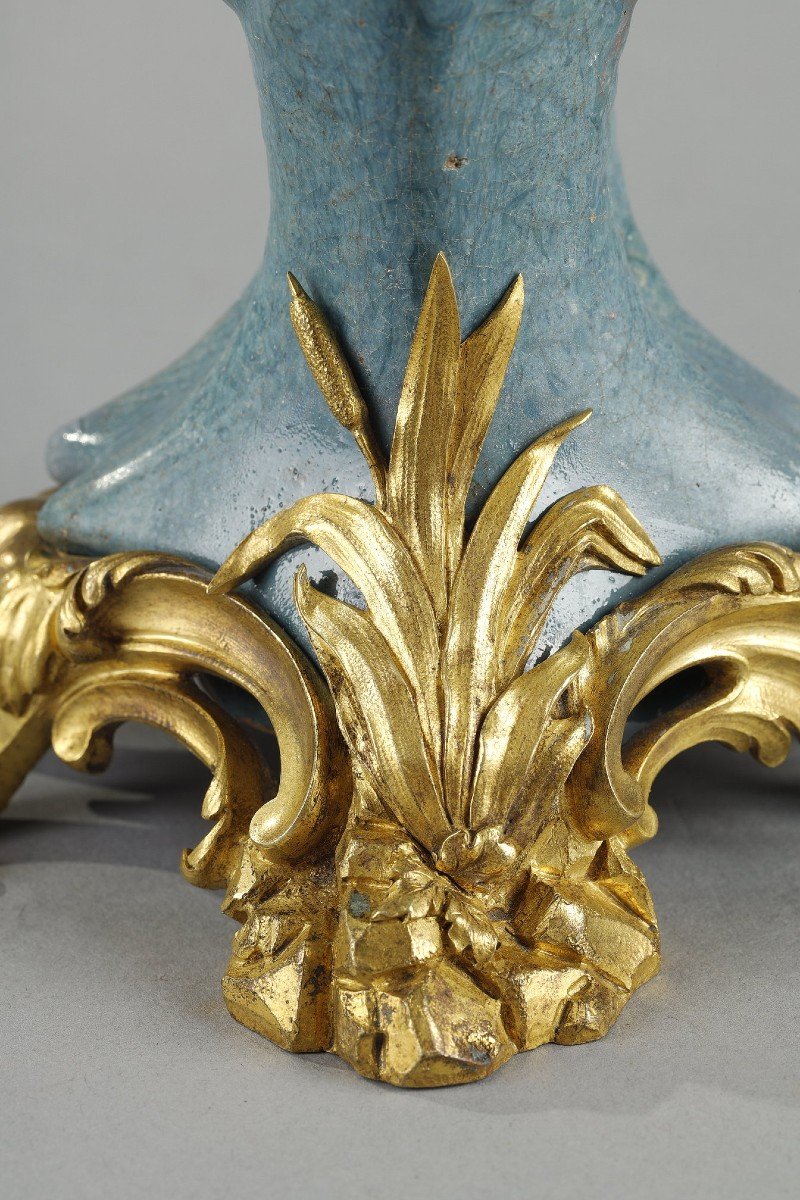
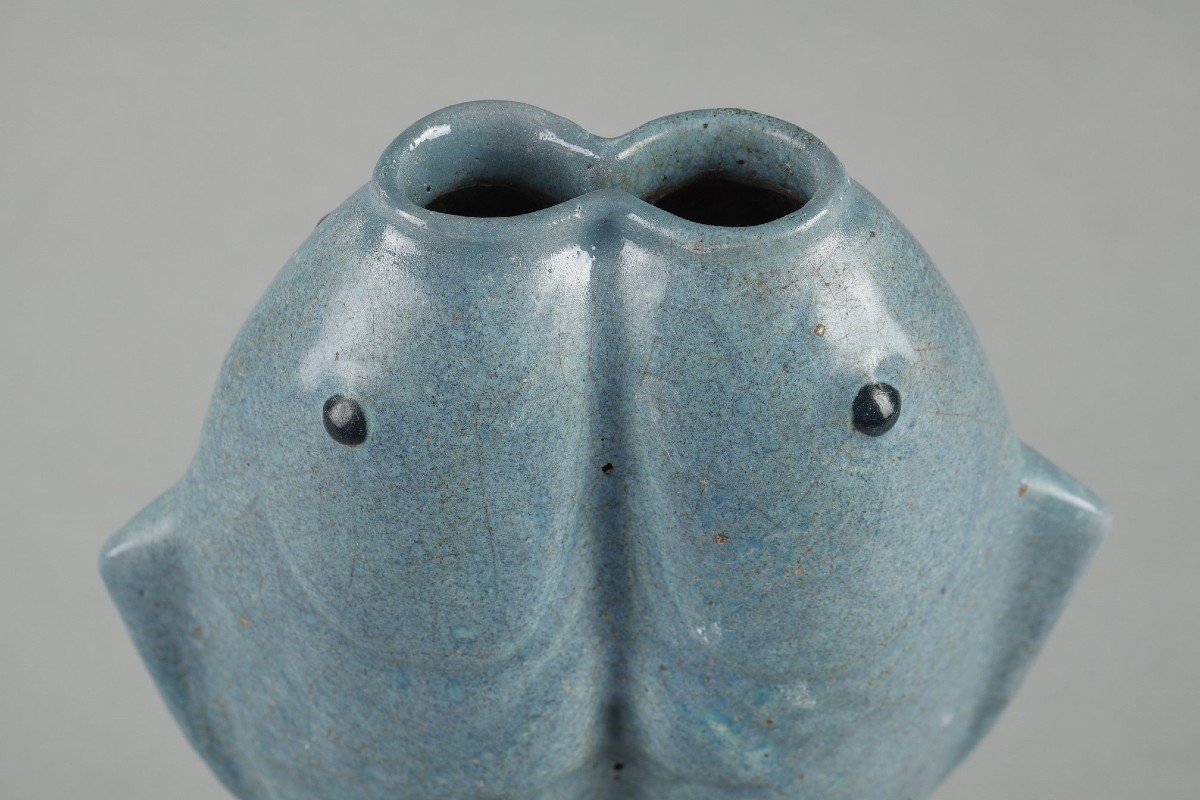
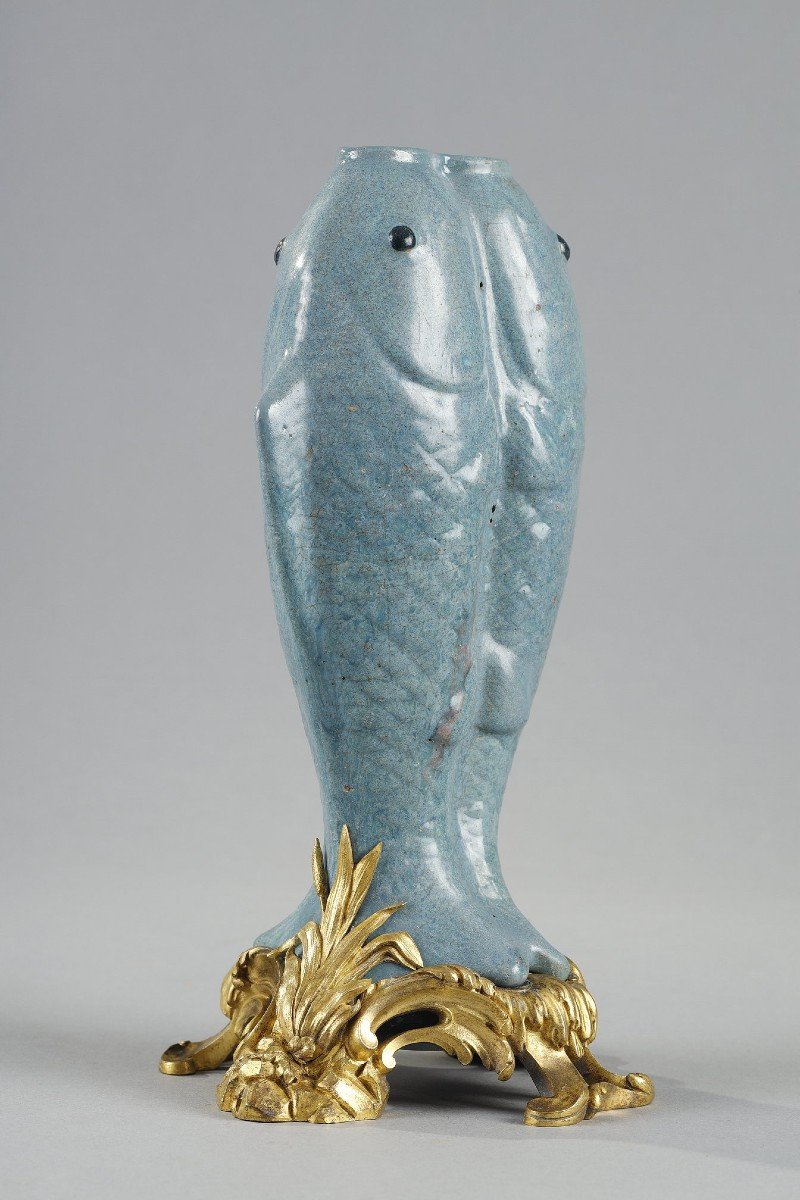
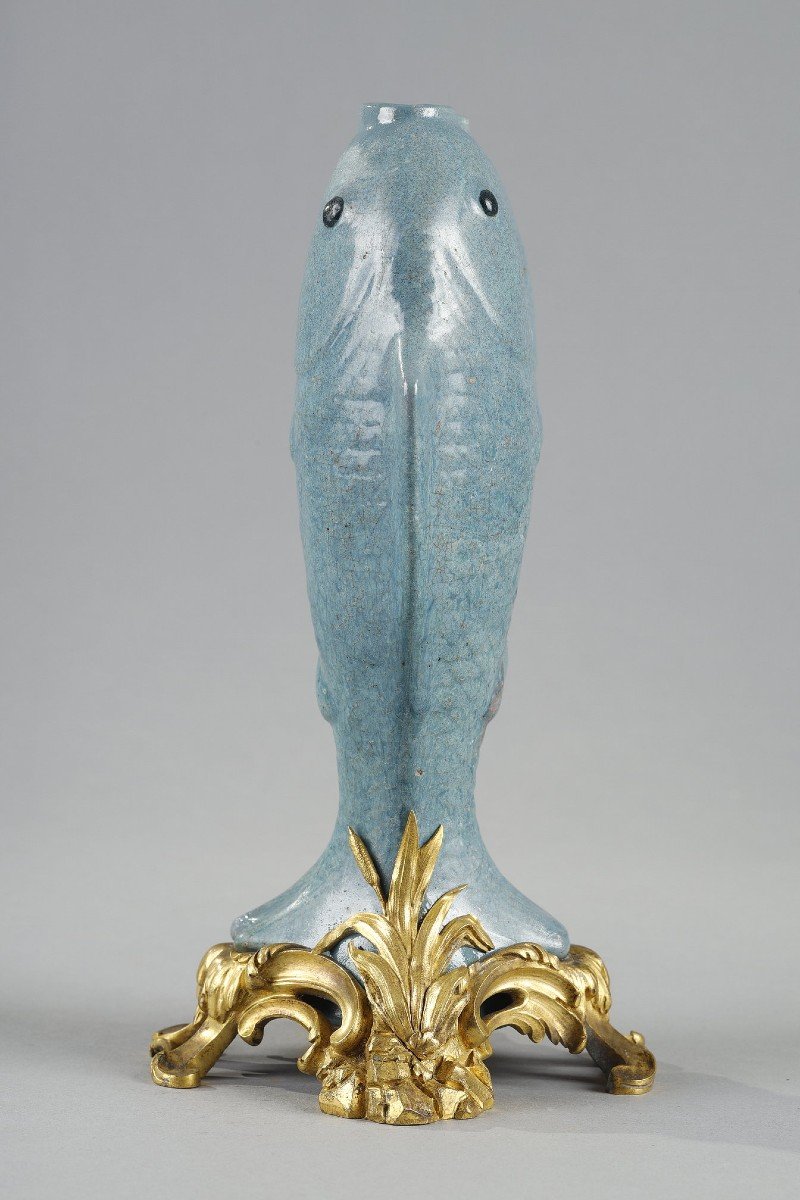
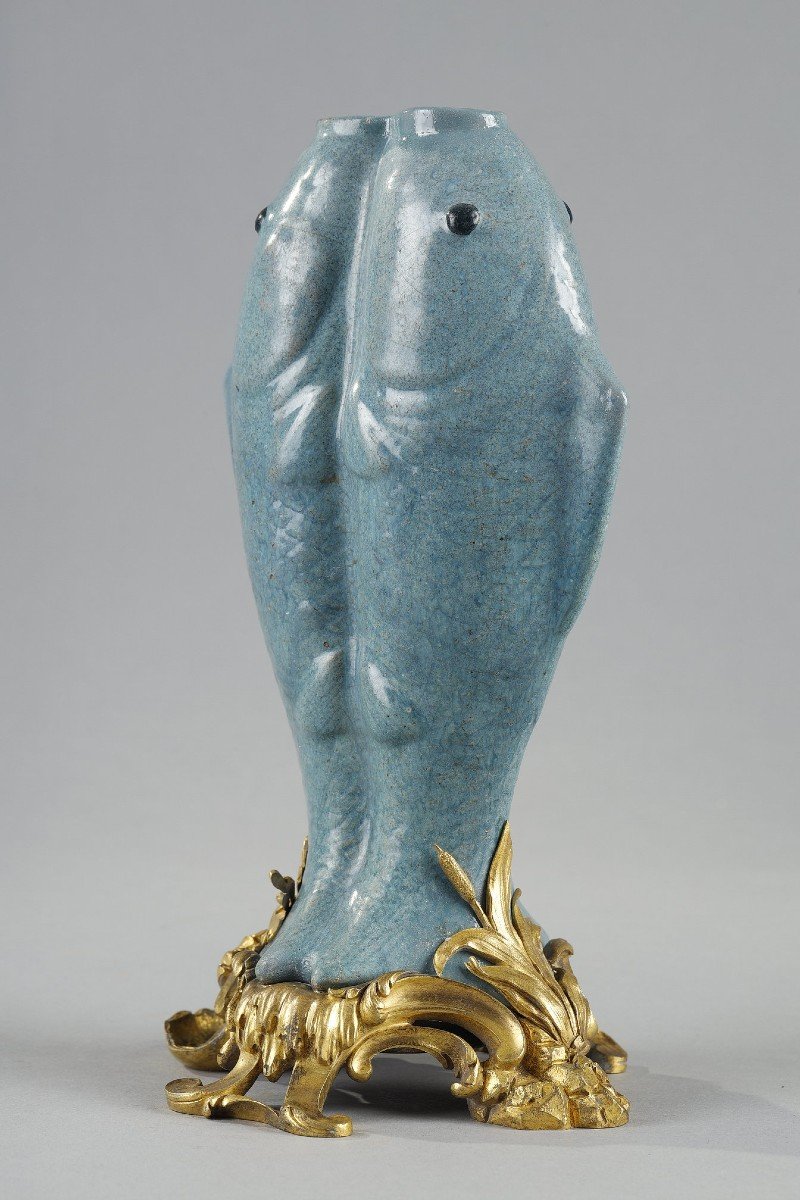
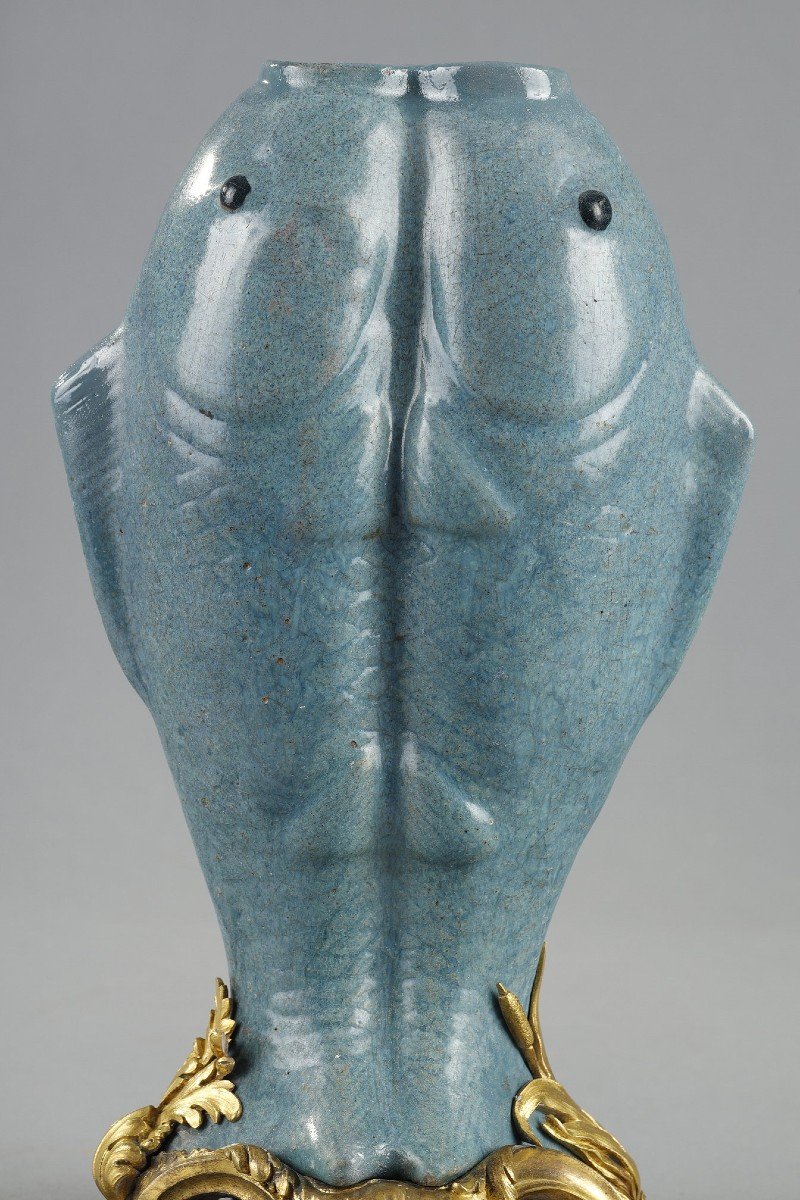
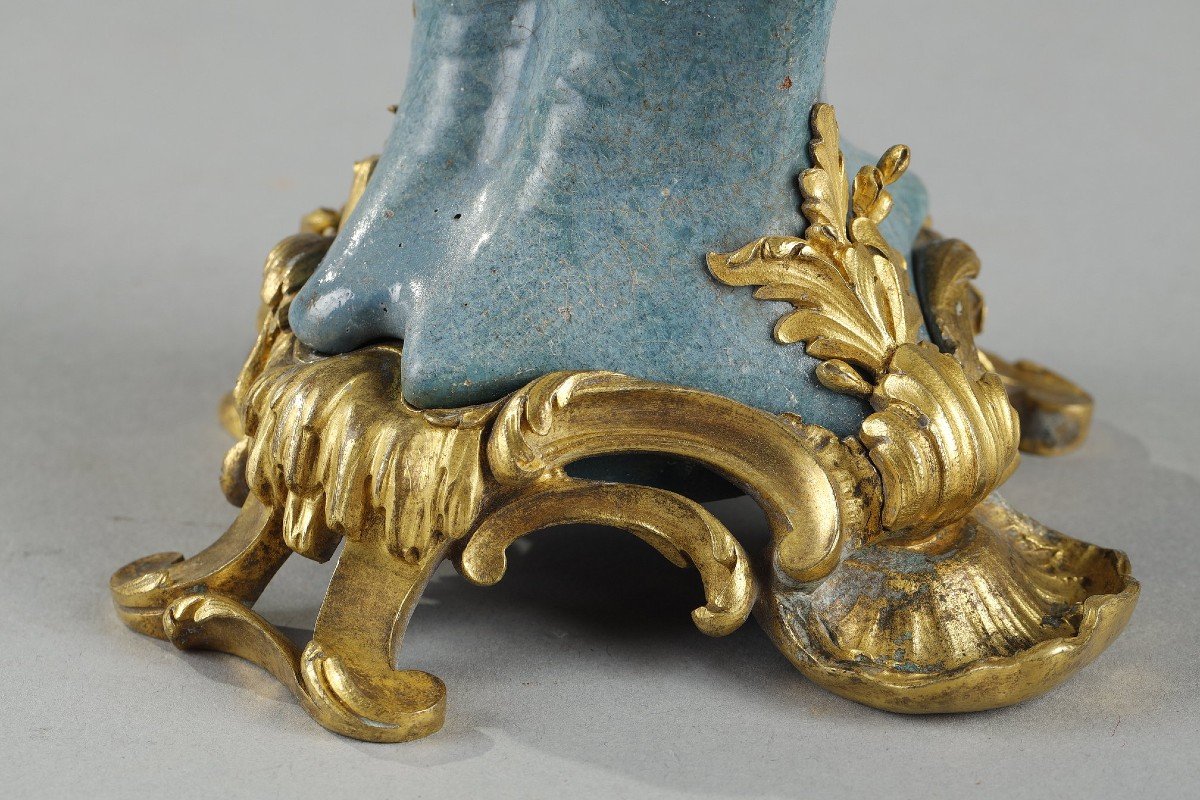
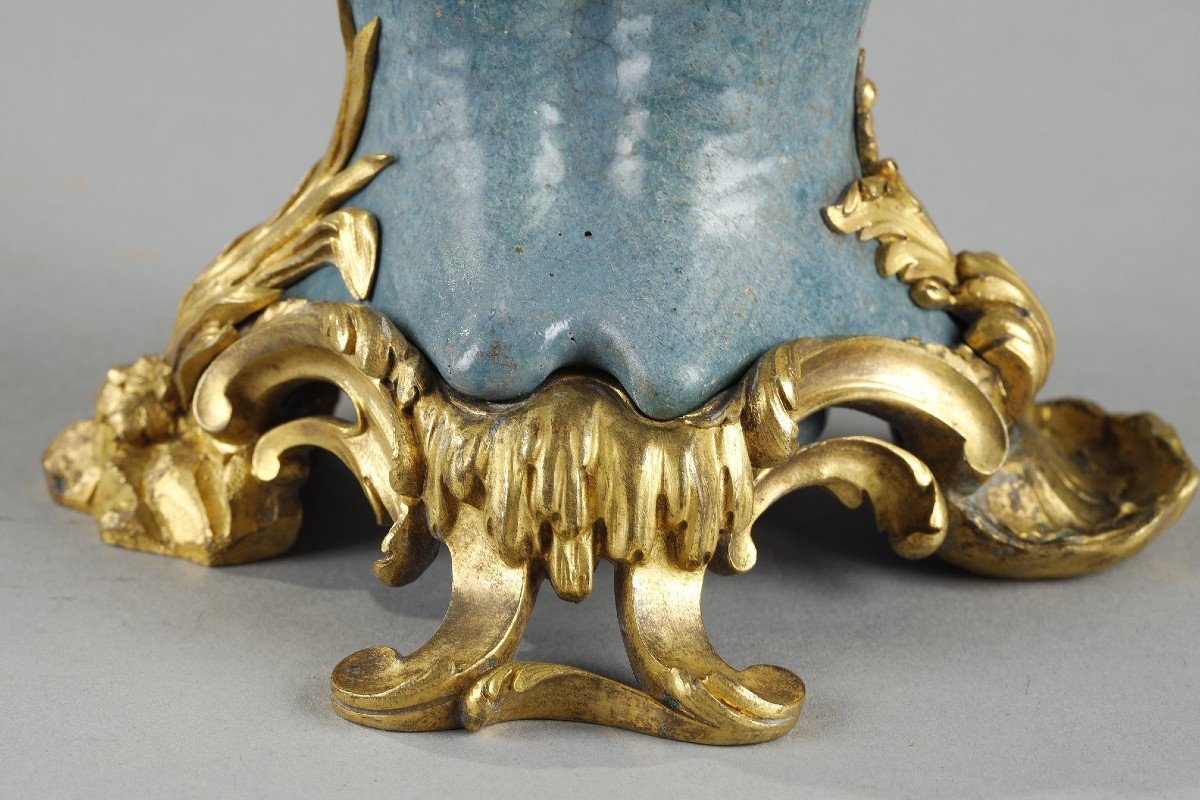
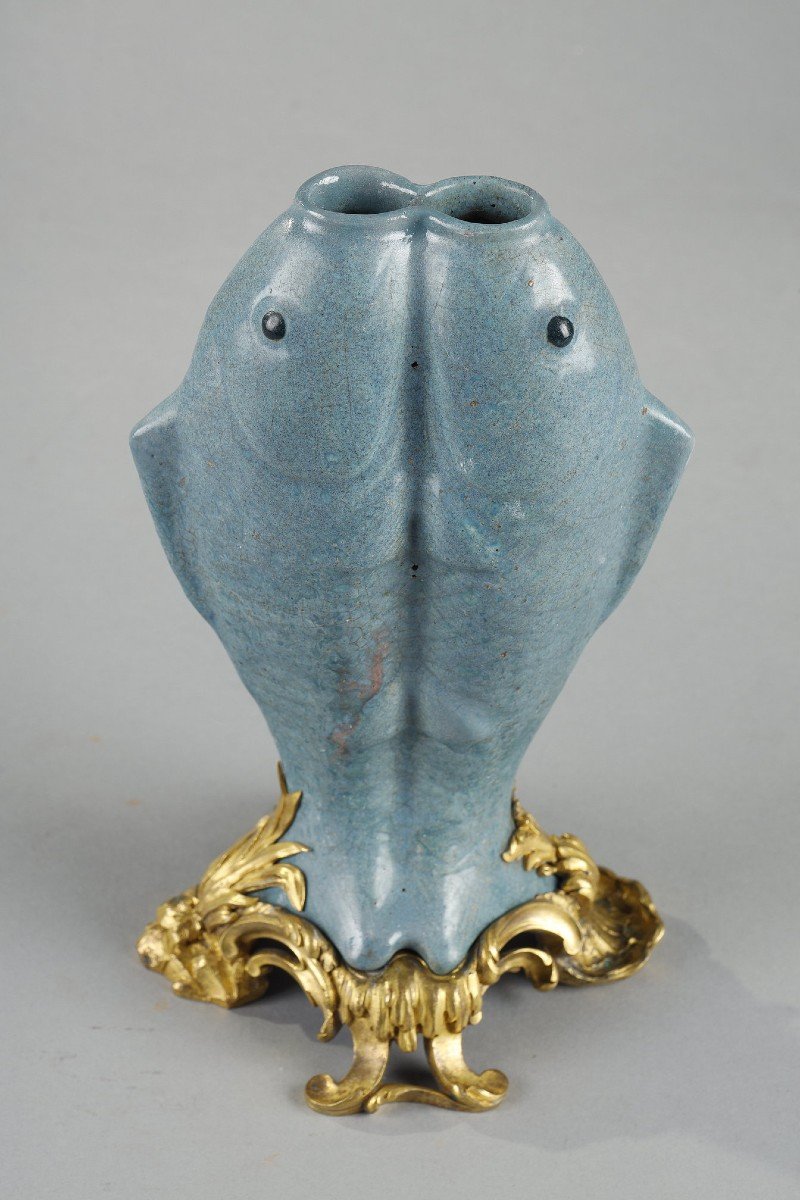
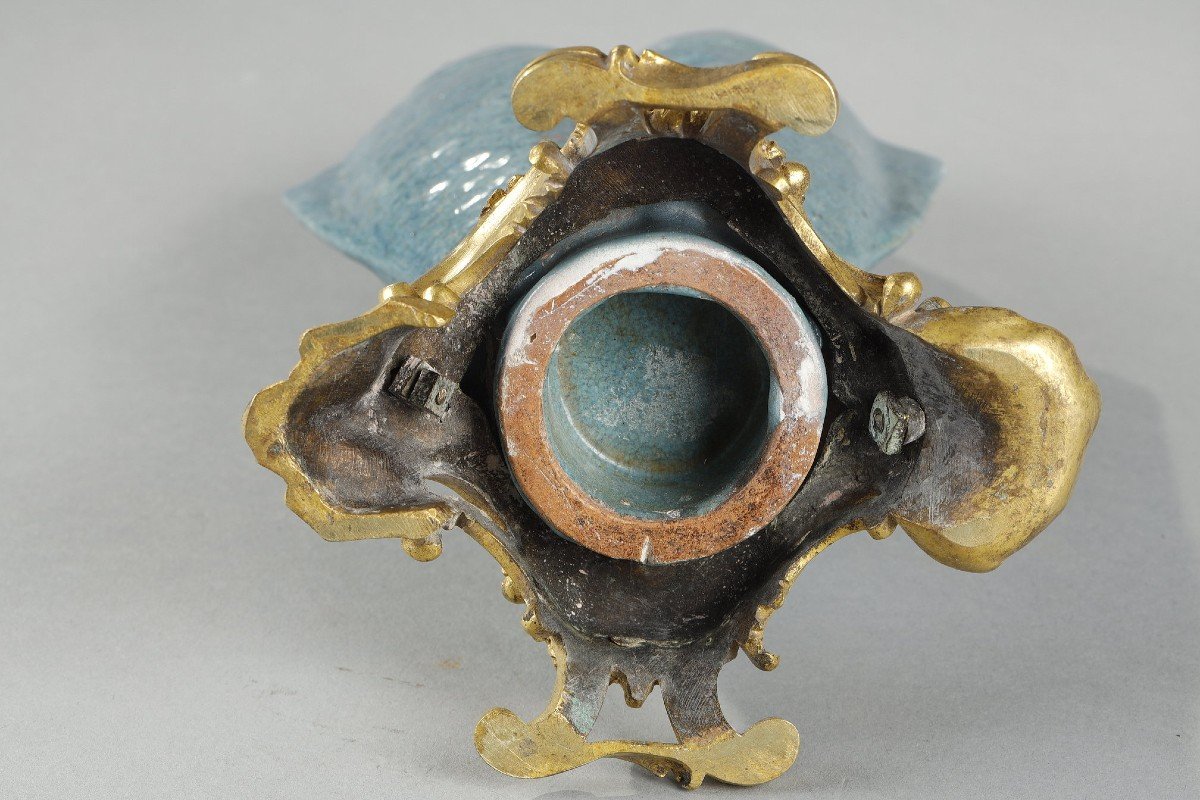


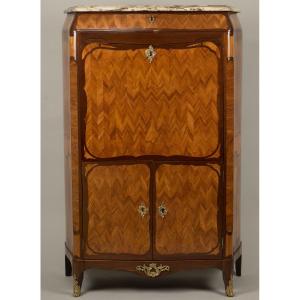
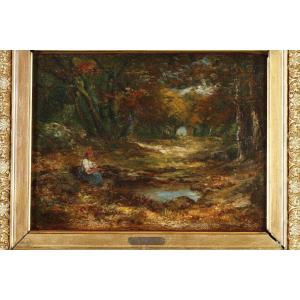
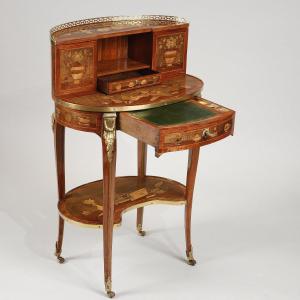

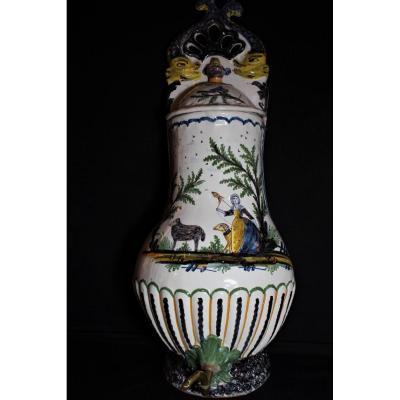

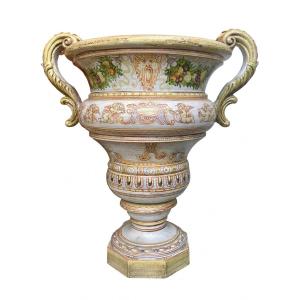
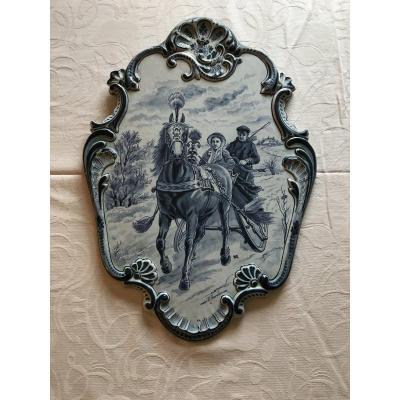





 Le Magazine de PROANTIC
Le Magazine de PROANTIC TRÉSORS Magazine
TRÉSORS Magazine Rivista Artiquariato
Rivista Artiquariato
